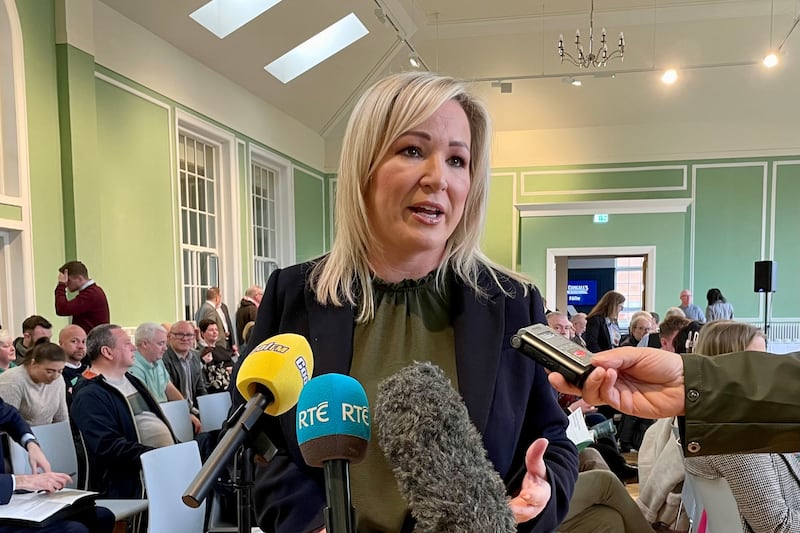A Westminster committee has made a raft of recommendations aimed at making devolution more stable.
The measures advocated by Northern Ireland Affairs Committee include electing the assembly speaker with a two-thirds majority and rebranding Stormont's top roles as 'joint first ministers'.
The MPs' report looks at the effectiveness of the Good Friday Agreement institutions 25 years after the accord was signed.
It comes against a background of the DUP's boycott of the institutions, which has meant the absence of a functioning executive since February last year.
DUP first minister Paul Givan resigned in protest at the Northern Ireland Protocol little over two years after devolution was restored following three years of dormancy caused by Sinn Féin's collapse of the institutions at the height of public anger over the botched RHI scheme.
The MPs call for British government to urgently reform the rules for electing an assembly speaker to enable a candidate to be appointed by a two-thirds 'supermajority' of MLAs, rather than being vetoed by one party.
Read more:
Arlene Foster's idea of a referendum on Stormont reform deserves discussion – Newton Emerson
The committee says the same threshold should be used to elect first and deputy first ministers. The report says that in recognition of their equal status, the positions should be rebranded as ‘joint first ministers’ with the role open to any two MLAs of any two parties rather than just the largest parties.
The changes would require consultation with the Irish government, as co-guarantors to the Agreement, as well as the Stormont parties along with changes to the 1998 Northern Ireland Act.
Some of the elements that the MPs believe need reformed were introduced following 2006's St Andrews Agreement.
Presently, votes from a majority of MLAs within both the 'nationalist' and 'unionist' designations are required to secure the posts of speaker, and first and deputy first ministers.
The cross-party MPs believe 'supermajority' voting would effectively equate to cross-community consent, due to the growth of the middle ground in recent years.
Committee chair Sir Robert Buckland said that when devolution collapses "critical public services are cast adrift".
"Health, education, policing; all are feeling the strain while important decisions go unmade, and the people of Northern Ireland suffer," he said.
The Conservative MP said "more stringent safeguards" were needed to prevent a "cycle of restoration and collapse".
"The short-term measures we’ve proposed will shore up the stability of Stormont increasing the incentives to keep the institutions moving and enabling the assembly to run without an executive in place," he said.
"In the longer run, we feel that a full independent review into the effectiveness of the institutions of the Belfast/Good Friday Agreement should be conducted with input from all stakeholders – this should include the north-south and east-west elements, but a fully functioning Stormont is the foundation on which the rest stands."
SDLP MP Claire Hanna said the report reflected a number of her party's proposals.
"Changing how the assembly elects a speaker, equalising the titles of the first ministers and reforming the process for electing them will make a substantial and substantive difference to the politics of this place," she said.
"But most importantly, it will allow the assembly to focus on the serious challenges that we should be uniting to face - repairing public services, delivering high quality childcare, addressing the climate crisis, reforming the economy and creating good jobs - rather than the narrow issues that divide people."








